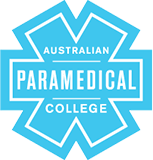
This role has a moderate level of AI exposure. AI can enhance efficiency for some tasks, but this job still relies on human skills and decision-making.
Explore all careersAn Emergency Services Officer (ESO) ensures site safety during emergencies, assesses situations, and arranges medical treatment for casualties.
Get qualified to work as an Emergency Services Officer (ESO) with a course recognised across Australia. Speak to a training provider to learn more.












In Australia, a full time Emergency Services Officer generally earns $1,500 per week ($78,000 annual salary) before tax. This is a median figure for full-time employees and should be considered a guide only. As you gain more experience you can expect a potentially higher salary than people who are new to the industry.
 Courses.com.au Team
Courses.com.au Team
The emergency response sector has seen a strong increase in employment numbers over the last five years. There are currently 19,700 people working in this field in Australia and many of them specialise as an Emergency Services Officer. Emergency Services Officers may find work across all regions of Australia.
Source: Australian Government Labour Market Insights
 Courses.com.au Team
Courses.com.au Team
If a career as an Emergency Services Officer interests you, consider enrolling in a Diploma of Paramedical Science. This course will prepare you for an emergency response role with subjects covering basic life support and transport of patients to a medical facility.
 Courses.com.au Team
Courses.com.au Team
Browse occupations related to Emergency Services Officer (ESO)



If you are looking to enhance your skills and pursue a rewarding career in emergency management, the Emergency Services Officer (ESO) courses in Bundaberg offer a variety of options tailored to suit both beginners and experienced learners. With a total of 16 courses available, you can find everything from essential vocational training to advanced qualifications in this vital field. For those starting their journey, beginner courses such as the Apply Fatigue Management Strategies TLIF2010 and the Certificate II in Fire Protection Inspection and Testing CPP20521 provide a solid foundation in emergency services knowledge.
For individuals like yourself residing in Bundaberg, the local training providers such as MSSS and AST are committed to delivering high-quality courses to prepare you for real-world scenarios. From learning to Lead an Emergency Control Organisation to Work Safely Around Aircraft, these courses are designed to equip you with the skills needed in emergency situations. Enrolling in these programmes lets you gain a comprehensive understanding of the responsibilities of an ESO, enhancing your employability in this demanding field.
Moreover, for those with prior experience looking to expand their expertise, advanced courses like the Diploma of Emergency Health Care HLT51020 and the Graduate Certificate in Emergency and Disaster Management are excellent options. These programs provide in-depth insights into emergency response strategies and disaster management principles, ensuring you are well-prepared for advanced roles within the industry. Investing your time in advanced training can position you for leadership roles in emergency services.
Additionally, Bundaberg is a region that prides itself on community safety, and acquiring qualifications in emergency services has never been more relevant. Through the Emergency Services Officer (ESO) courses in Bundaberg, you can become an integral part of ensuring safety and readiness in your local community. The comprehensive courses available focus on essential areas such as Provide Emergency Care for Suspected Spinal Injury and Participate in a Rescue Operation, enabling you to respond effectively to emergencies.
In conclusion, Bundaberg offers a robust selection of Emergency Services Officer (ESO) courses designed for individuals at various stages in their career. Whether you are just starting or looking to further your career, these courses will equip you with the vital skills needed for a successful career in emergency management. With the support from local providers such as MSSS and AST, you can embark on your journey with confidence and purpose. Explore the options available today and take the first step towards a fulfilling role in emergency services!